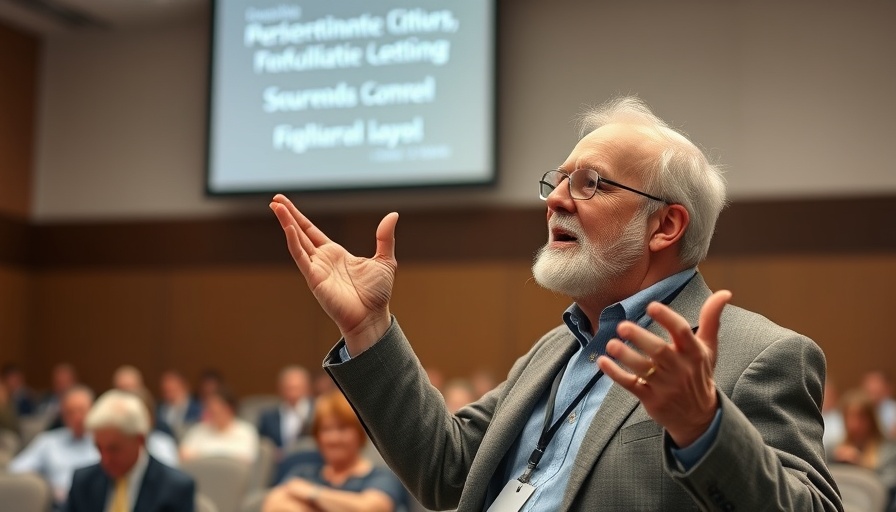Understanding the Power of Prayer Like the Early Christians
In the video Prayer That Moves Heaven and Earth, we explore the theme of bold prayer, a powerful reminder of the impact that community and faith have when faced with challenges.
Prayer is an essential part of a Christian's life, especially when facing challenges. In the video titled Prayer That Moves Heaven and Earth, we learn how the early Christians prayed fervently and boldly, just after the Holy Spirit was poured out at Pentecost. Through acts 4:23-31, John Piper emphasizes the significance of prayer in a world full of trials and persecutions. This passage can inspire us today to seek a deeper connection with God.
The Importance of Collective Prayer
The early Christians gathered together to pray after Peter and John faced threats. They understood the value of collective prayer in facing challenges, as shown in verse 23 of Acts. They didn’t pray alone; they lifted their voices together to God. This unity reminds us that praying together with friends can bring strength and courage when we are feeling weak. When we share our fears and requests in prayer with others, we build a supportive community that lifts each other up in faith.
Learning from Their Boldness
When the early believers prayed, they were not only asking for help; they demonstrated unwavering boldness in their faith. They had just come from serious threats against their lives and still felt empowered to seek God’s guidance. We too can learn from their example of boldness. In our own lives, we may feel timid or unsure about sharing our faith. However, asking God for courage, as they did, can give us the strength to stand firm. It’s essential to remember that we are not alone; we can turn to God and ask Him for that same boldness.
Asking God for Help in Tough Times
The prayer of the early Christians in Acts 4 is particularly relevant for us today because they acknowledged the issues at hand and sought God’s intervention. Their simple yet powerful request was: "Lord, look upon their threats, and grant your servants to speak with boldness." They did not shy away from the reality of their situation; instead, they brought their fears to God. This reformulation of their needs encourages us to be honest in our conversations with God—whether we are afraid, uncertain, or facing difficulties.
Understanding God’s Sovereignty
What is particularly inspiring about their prayer is how they focused more on God and who He is than on their fears. They recognized God as the creator of heaven and earth—acknowledging His power and sovereignty. By remembering how great God is, we gain confidence in His ability to help us. We may encounter difficult circumstances, but understanding that God is in control can also help us through them. This gives us peace and reassurance that He is involved in every situation we face.
The Relevance of Prayer in Today’s World
Just as the early church experienced challenges such as persecution, we have our own battles today. Whether it's societal pressures, personal struggles, or obstacles in sharing our faith, we need to be equipped with strong prayer lives. Prayer not only helps us in our struggles, but it also moves us closer to God. Regular and sincere communication with Him can shake the foundations of our fears and doubts, just as it did for the believers of old.
Make Prayer a Priority
This message from the early church challenges us to make prayer a priority in our daily lives. By modeling our prayer life after theirs, we can draw upon powerful examples of faith that inspire us to speak boldly about our beliefs. Let us commit together to praying for each other, encouraging one another, and seeking God’s guidance in our lives just as they did.
As we reflect on the lessons learned from Prayer That Moves Heaven and Earth, let's be inspired to elevate our prayer lives, knowing that changes can happen when we begin with sincere prayer. Are you ready to take that step? Prayer deeply connects us to God and can transform not only our lives but also the world around us. Let’s pray together for boldness, courage, and the outpouring of the Holy Spirit!
 Add Row
Add Row  Add
Add 








Write A Comment